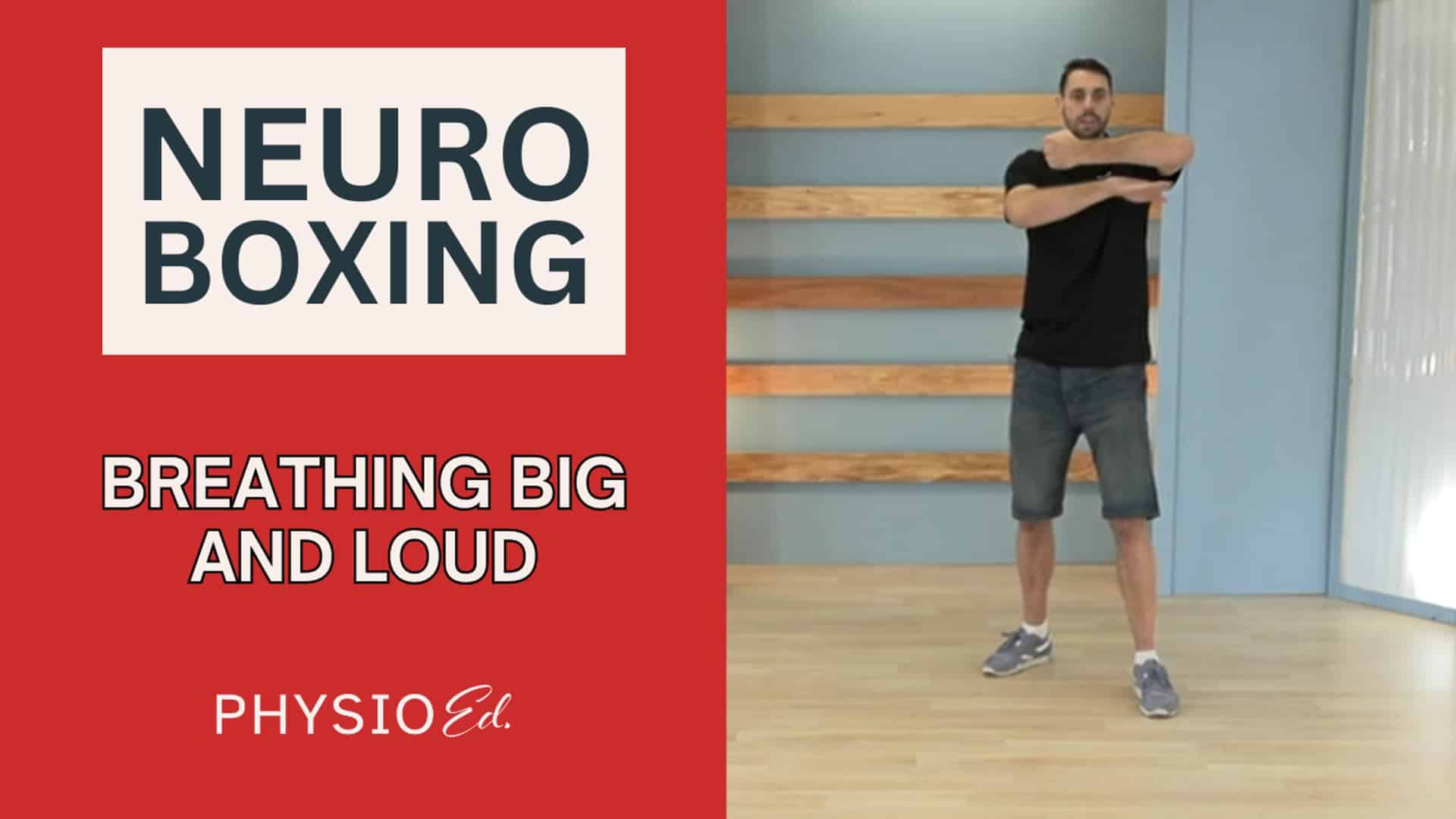
Breathing Big and Loud
| CLASS TYPE | Neuro Boxing |
| EQUIPMENT USED | Nothing |
| LENGTH OF CLASS | 30 Minutes |
| FITNESS LEVEL | Foundational |
| INSTRUCTOR | Dr. Jake Gladstone |
Dr. Jake Gladstone emphasizes the importance of incorporating specific techniques to enhance physical performance and manage symptoms more effectively. Among these techniques, big and loud breathing plays an important role in the workout routines designed for Parkinson’s patients. This approach not only aids in maintaining control over motor functions but also significantly contributes to the overall well-being of the participants.
Big Breathing
Big breathing focuses on taking deep, expansive breaths to increase oxygen intake and promote better circulation throughout the body. For Parkinson’s patients, this technique is particularly beneficial as it helps to improve respiratory function, which can be compromised by the disease’s progression. Dr. Gladstone highlights that by practicing big breathing during workouts, you can experience enhanced energy levels, greater stamina, and a reduction in the symptoms of fatigue. This method also encourages a more focused and mindful engagement with the exercise, allowing for a deeper connection between physical movement and breath.
Loud Breathing
Loud breathing, on the other hand, involves vocalizing breaths in a pronounced manner. This technique involves engaging the diaphragm and muscles involved in respiration more actively. Dr. Gladstone points out that loud breathing can significantly improve vocal strength and clarity, which are often affected in Parkinson’s patients. Additionally, this practice aids in the regulation of breathing patterns, which can enhance the effectiveness of the workout and provide a rhythmic guide for movements, improving coordination and balance.
Benefits of Big and Loud Breathing in Neuro Boxing
Incorporating big and loud breathing into neuro boxing sessions offers a multitude of benefits. These techniques assist in maintaining a high level of physical activity while also addressing specific symptoms associated with Parkinson’s disease. The practice of consciously controlling breath not only improves pulmonary function but also strengthens the neural connections between the brain and the muscles, aiding in the management of motor symptoms. Moreover, the emphasis on breath control and vocalization can have a positive impact on speech and communication abilities, providing a comprehensive approach to symptom management.
Tips for Effective Workouts
- Warm-Up: Always start with a light warm-up to increase blood flow to the muscles.
- Consistency: Incorporate stretching into your daily routine for the best results.
- Hold Stretches: Aim to hold each stretch for at least 30 seconds to allow the muscle to relax and stretch properly.
- Breath: Focus on breathing deeply to enhance relaxation and effectiveness.
By incorporating big and loud breathing techniques into neuro boxing workouts, you can enjoy the benefits of improved physical health, better symptom management, and enhanced quality of life.

